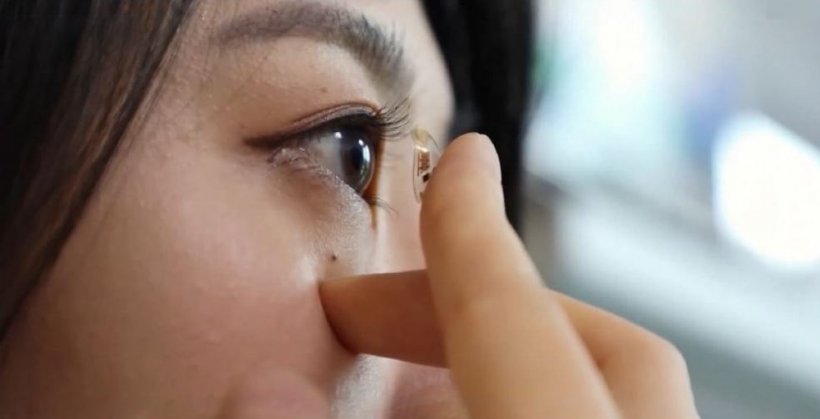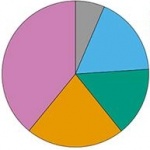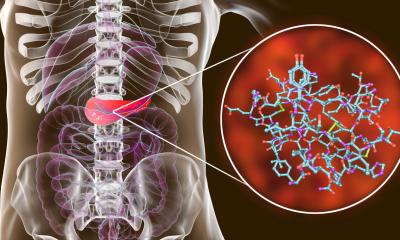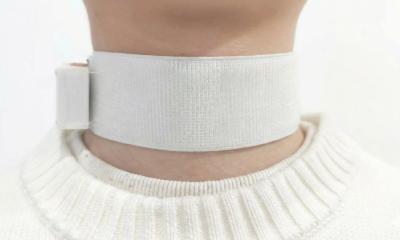
Image source: Pohang University of Science and Technology
News • Wearable against diabetic retinopathy
Smart contact lenses for diabetes diagnosis and treatment
Diabetes is called an incurable disease because once it develops, it does not disappear regardless of treatment in modern medicine.
Having diabetes means a life-long obligation of insulin shots and monitoring of blood glucose levels. Recently, a research team at Pohang University of Science and Technology developed a wirelessly driven ‘smart contact lens’ technology that can detect diabetes and further treat diabetic retinopathy just by wearing them.
Professor Sei Kwang Hahn and graduate students Do Hee Keum and Su-Kyoung Kim of the university's Department of Materials Science and Engineering, and Professor Jae-Yoon Sim and graduate student Jahyun Koo of Department of Electronics and Electrical Engineering have developed a wireless powered smart contact lens that can diagnose and treat diabetes by controlling drug delivery with electrical signals. The findings were recently published in the journal Science Advances. The smart contact lenses developed by the research team are made of biocompatible polymers and integrate biosensors and drug delivery and data communication systems.
Recommended article

Video • Paradigm shift
Diabetes has 5 subtypes, not 2, study suggests
A completely new classification of diabetes which also predicts the risk of serious complications and provides treatment suggestions. The major difference from today’s classification is that type 2 diabetes actually consists of several subgroups, the results indicate. “This is the first step towards personalised treatment of diabetes”, says physician and diabetes expert Leif Groop.
The research team verified that the glucose level in tears of diabetic rabbits analyzed by smart contact lenses matched their blood glucose level using a conventional glucose sensor that utilize drawn blood. The team additionally confirmed that the drugs encased in smart contact lenses could treat diabetic retinopathy.
Recently, by applying the platform technology of these smart contact lenses, research has been conducted to expand the scope of electroceuticals that use electrical stimulations to treat brain disorders such as Alzheimer’s and Parkinson’s diseases, and mental illnesses including depression. The research team expects this development of self-controlled therapeutic smart contact lenses with real-time biometric analysis to be quickly applied to wearable healthcare industries.
Professor Sei Kwang Han who led the research stated, “Despite the full-fledged research and development of wearable devices from global companies, the commercialization of wireless-powered medical devices for diagnosis and treatment of diabetes and retinopathy is insufficient.” He added, “We expect that this research will greatly contribute to the advancement of related industries by being the first in developing wireless-powered smart contact lenses equipped with drug delivery system for diagnosis and treatment of diabetes, and treatment of retinopathy.”
Source: Pohang University of Science and Technology (POSTECH)
29.04.2020











